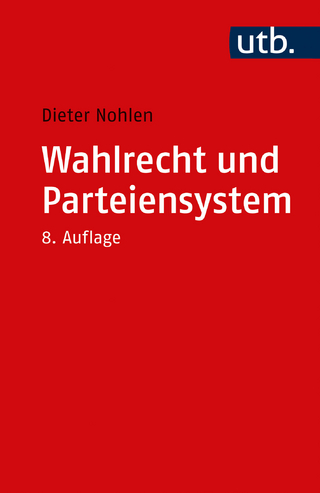
Dictators and Democracy in African Development
Cambridge University Press (Verlag)
978-1-107-08114-7 (ISBN)
What are the conditions for good governance in Africa, and why do many democracies still struggle with persistent poverty? Drawing on a historical study of Nigeria since independence, this book argues that the structure of the policy-making process explains variations in government performance better than other commonly cited factors, such as oil, colonialism, ethnic diversity, foreign debt, and dictatorships. The author links the political structure of the policy process to patterns of government performance over half a century to show that the key factor is not simply the status of the regime as a dictatorship or a democracy, but rather it is the structure of the policy-making process by which different policy demands are included or excluded. By identifying political actors with the leverage to prevent policy change and extract concessions, empirical tests demonstrate how these 'veto players' systematically affect the performance of two broad categories of public policy. This Madisonian dilemma has important implications for African countries struggling with the institutional trade-offs presented by different regimes.
A. Carl LeVan is an Assistant Professor in the School of International Service at American University, Washington DC. His research focuses on political institutions, democratization, and African security. His essays on power-sharing in East Africa, civil society in Nigeria, Boko Haram, comparative authoritarianism, and the US military's Africa Command have appeared in journals such as Governance, Africa Today, Commonwealth and Comparative Politics, and the Journal of Intervention and Statebuilding. His article, 'Questioning Tocqueville in Africa', won the Frank Cass Award for Best Article in 2011 on Democratization by a Young Scholar. Recent collaborative essays examine property rights and migration in Abuja and the economic impact of cabinet size. A new collaborative project with Professor Todd Eisenstadt examines the democratizing effects of participatory constitution-making around the world. Prior to receiving his PhD in Political Science from the University of California, San Diego, he worked in the US Congress, and then served as a technical advisor to Nigeria's National Assembly. Follow him on twitter at https://twitter.com/Dev4Security.
Introduction; 1. A theory of institutions, preferences, and performance; 2. Veto players in Nigeria's political history since independence; 3. The impact of Nigeria's veto players on local and national collective goods; 4. Analytic equivalents in Ghana and Zimbabwe; 5. Madison's model unbound.
| Erscheint lt. Verlag | 17.11.2014 |
|---|---|
| Reihe/Serie | African Studies |
| Zusatzinfo | 7 Tables, unspecified; 4 Line drawings, black and white |
| Verlagsort | Cambridge |
| Sprache | englisch |
| Maße | 152 x 229 mm |
| Gewicht | 620 g |
| Themenwelt | Sozialwissenschaften ► Politik / Verwaltung ► Politische Systeme |
| Sozialwissenschaften ► Politik / Verwaltung ► Politische Theorie | |
| Sozialwissenschaften ► Politik / Verwaltung ► Staat / Verwaltung | |
| Sozialwissenschaften ► Politik / Verwaltung ► Vergleichende Politikwissenschaften | |
| Wirtschaft ► Volkswirtschaftslehre ► Wirtschaftspolitik | |
| ISBN-10 | 1-107-08114-9 / 1107081149 |
| ISBN-13 | 978-1-107-08114-7 / 9781107081147 |
| Zustand | Neuware |
| Haben Sie eine Frage zum Produkt? |
aus dem Bereich


